
THREAD: boris johnsons resignation
LifeLine™ Media threads use our sophisticated algorithms to construct a thread around any topic you want, providing you with a detailed timeline, analysis, and related articles.
News Timeline

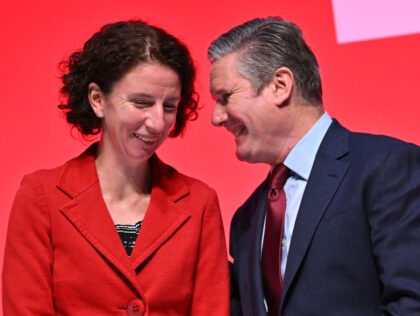
UK DEFENSE SPENDING Hike: Resignation Shocks Politics
— Anneliese Dodds resigned from her roles as international development minister and minister for women. She disagreed with the cuts to overseas aid. Dodds shared her resignation letter online, voicing concerns over reducing the aid budget. While she understood the need for more defense spending, she criticized how much aid was being cut.
Keir Starmer plans to raise U.K. defense spending to 2.5% of GDP by 2027, up from 2.3%. This boost will come by cutting the aid budget from 0.5% of GDP to 0.3%. Starmer called this decision “very difficult and painful,” signaling a new era of insecurity in Europe that needs a strong response.
Dodds argued that these deep cuts would hurt vulnerable populations and harm the U.K.'s global reputation. She pointed out that supporting Gaza, Sudan, Ukraine, vaccinations, climate projects, and rules-based systems would be impossible with less funding. Aid agencies agreed, warning about negative effects on global poverty efforts and Britain’s influence abroad.
Despite initial doubts due to Starmer’s meeting with President Trump in Washington, Dodds decided to resign after his return from the trip. Her exit highlights tensions within Starmer’s Cabinet over balancing defense priorities with humanitarian commitments.

MAYOR ERIC Adams’ Team In Turmoil: Resignations Spark Leadership Crisis
— Four top deputies in New York City Mayor Eric Adams’ administration have resigned, signaling potential instability within his leadership team. This development comes amid growing dissatisfaction among city workers and officials. Adams has been actively engaging with federal authorities to enhance law enforcement collaboration on immigration issues.
In a separate matter, the Trump administration’s Department of Government Efficiency (DOGE) is under scrutiny for its involvement with the Social Security Administration. A top official resigned following disagreements over sensitive data handling, reflecting ongoing tensions between federal agencies and DOGE’s cost-cutting measures led by Elon Musk.
Protests against President Donald Trump and Elon Musk continue nationwide, with demonstrators voicing concerns over their policies and actions. Meanwhile, the Department of Homeland Security launched a new ad campaign warning criminal migrants against entering the U.S., reinforcing strict immigration policies under Trump’s leadership.
Amidst these political developments, Trump’s administration has initiated firings within the Federal Aviation Administration following a fatal plane crash in Washington D.C., raising concerns about air traffic safety during peak travel times. Additionally, federal health agencies are evaluating recent layoffs’ impact on their operations as they navigate staffing changes prompted by government directives.

BANGLADESH TURMOIL: Prime Minister’s Shocking Exit Sparks Chaos
— Bangladesh’s Prime Minister Sheikh Hasina has resigned and fled the country, causing a major political upheaval. Her resignation follows weeks of violent protests over her government’s handling of economic and human rights issues.
The situation in Bangladesh is tense, with security forces on high alert to prevent more violence. Opposition groups are mobilizing, raising concerns about potential power vacuums and increased instability in the region.
Reactions to Hasina’s resignation are mixed. Some see it as a step toward peace, while others worry about what it means for Bangladesh’s future governance and stability.
This unexpected development marks a significant political shift in Bangladesh, leaving many questions unanswered about what comes next for the nation.

BANGLADESH CHAOS: Prime Minister Resigns Amid Intense Protests
— Bangladesh’s Prime Minister Sheikh Hasina has resigned and fled the country amid violent protests. Demonstrators stormed her official residence, challenging her 15-year rule. Her departure adds to the nation’s instability, already plagued by high unemployment and corruption.
Security forces have increased their presence across Dhaka, where the main airport suspended operations for safety reasons. Reports suggest Hasina escaped in a military helicopter with her sister as chaos escalated.
Military chief Gen. Waker-uz-Zaman promises to restore order and is negotiating with opposition leaders to form an interim government. This move could significantly change Bangladesh’s political landscape.
While some celebrated in the streets, others turned violent, attacking government buildings and setting fires. The unrest highlights widespread dissatisfaction and may indicate a shift in regional power dynamics.
:max_bytes(150000):strip_icc():focal(749x0:751x2)/justin-trudeau-resignation-010625-6-15ddb0f147284e2492e88ab4023b235b.jpg)
TRUDEAU’S Shocking Exit: What It Means for Canada’S Future
— Canadian Prime Minister Justin Trudeau has announced his resignation, marking a major shift in the nation’s political landscape. Trudeau cited the need for Canadians to have a “real choice” in future elections. His decision follows internal party struggles and numerous political challenges during his nearly decade-long tenure.
Trudeau’s departure aims to rejuvenate the Liberal Party and reconnect it with voters. The announcement comes just before a crucial parliamentary session, highlighting the urgency for new leadership. Trudeau believes fresh leadership is needed to tackle Canada’s evolving challenges more effectively.
This move aligns with a global trend where leaders face increased scrutiny and demands for accountability from constituents. During his time in office, Trudeau faced debates on climate change, economic policies, and social justice issues that defined his leadership era.
Speculation about potential successors within the Liberal Party has already begun as Canada braces for upcoming elections. Public reaction is mixed, with some disappointed by his exit while others see it as an opportunity for change in Canadian politics.

UK Prime Minister’s SHOCKING ADMISSION: The Great Replacement Agenda
— Prime Minister Starmer has confirmed suspicions of a “Great Replacement” agenda, accusing past Tory governments of liberalizing immigration post-Brexit. He criticized the lack of public support for these policies, claiming they were designed to create an open-border Britain. Starmer’s remarks highlight the unprecedented immigration levels under Boris Johnson and Rishi Sunak’s leadership.
The open borders policy in the UK started before Tory rule. Former Labour PM Tony Blair significantly increased net migration. In 2009, Blair’s advisor Andrew Neather admitted this was a deliberate strategy to transform Britain into a multicultural society. This shift has dramatically changed the UK’s demographic landscape over recent decades.
According to the 2021 census, only 74.4% of the population now identify as members of indigenous British ethnic groups, compared to 80% in 2011 and 87.5% in 2001. Dr Paul Morland warns that if current trends continue, native white Britons could become a minority by 2050. He notes that since Blair’s administration, immigration levels have surpassed those from historical periods like the Norman Conquest to World War II.
Dr Morland argues that reversing this trend is possible by adopting stricter immigration controls similar to Singapore’s approach. He emphasizes that while current policies have significant implications for national identity and demographics, they are crucial

UK PM Faces BACKLASH: Apologize to Trump or Risk Trade Deal?
— Prime Minister Sir Keir Starmer is under pressure to apologize to President-Elect Donald Trump for past harsh words. Concerns about the “special relationship” between the U.S. and the UK are growing, especially with a potential trade deal on the line. Brexit leader Nigel Farage urged the Labour government to welcome Trump, seeing his friendship as a big opportunity for Britain.
New Tory leader Kemi Badenoch supported this view during her first Prime Minister’s Questions session. She urged Starmer to formally apologize for Foreign Secretary David Lammy’s derogatory remarks about Trump, which included inflammatory language and actions against him speaking in Parliament. Badenoch congratulated Trump on his win and asked if apologies were made during recent meetings with him.
Starmer avoided directly addressing the apology issue, describing his meeting with Trump as “constructive.” However, he did not respond to calls for an apology. His previous comments have shown anti-Trump sentiment, accusing the Tory party of following Trump’s politics by neglecting democratic principles for self-interest.
This stance raises questions about future UK-U.S relations under Starmer’s leadership if tensions remain unresolved. The situation could impact diplomatic ties and economic agreements between these long-time allies if not addressed soon.

— Labour Party Suspends MP Mike Amesbury Following Assault Video The Labour Party has suspended Mike Amesbury after CCTV footage emerged of him punching a man in the street

— Alex Salmond, Former SNP Leader and First Minister of Scotland, Dies at 69 The political landscape is mourning the sudden death of Alex Salmond, a prominent figure in Scottish politics for decades

COLUMBIA UNIVERSITY President Quits Amid Campus Chaos
— Columbia University President Minouche Shafik resigned Wednesday after a brief, tumultuous tenure. Her resignation follows heavy scrutiny over her handling of protests and campus divisions related to the Israel-Hamas war. The Ivy League school faced intense student demonstrations, leading to police intervention and clashes.
The announcement comes days after three Columbia University Deans resigned for exchanging disparaging texts about Jewish life and antisemitism. Shafik was criticized by Republicans in Congress for not adequately addressing antisemitism concerns on campus. She began her role in July last year but announced her resignation just weeks before the new semester starts on Sept. 3.
In an emailed letter, Shafik mentioned progress in important areas but admitted it was difficult to overcome divergent views within the community. She cited the toll on her family as a reason for stepping down, believing it would help Columbia navigate future challenges better. The university has started restricting campus access to curb potential disruptions as classes resume soon.
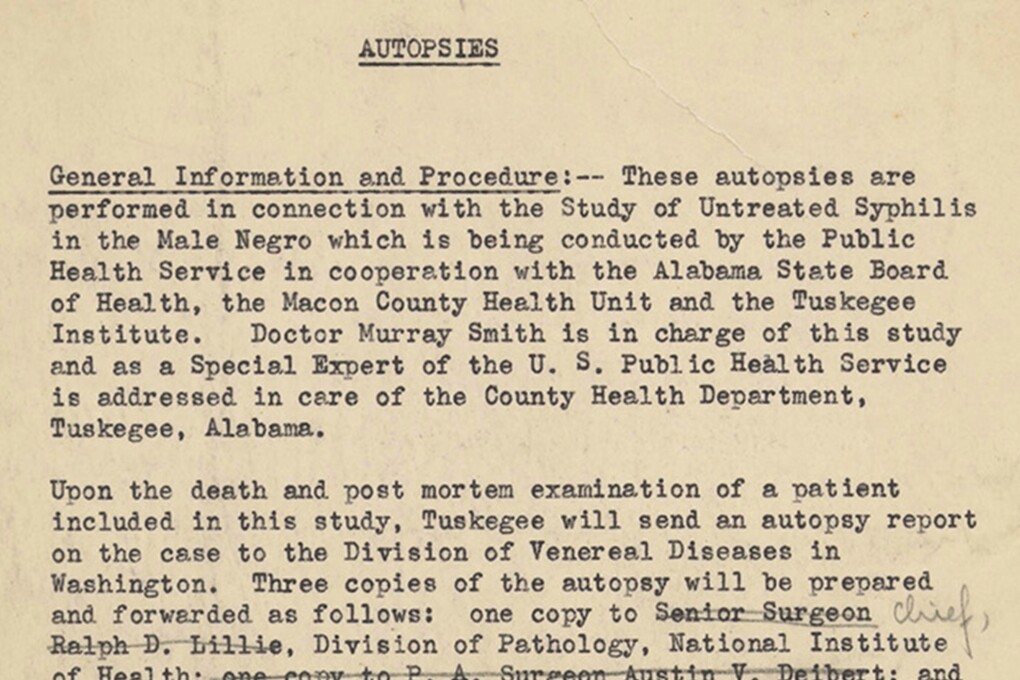
— Biden Explains Abandoning Reelection Bid in Emotional Oval Office Address President Joe Biden provides a poignant explanation for his decision to forgo seeking reelection during a solemn Oval Office speech

— Keir Starmer Declares End of Rwanda Scheme: Promises Action Over Words Prime Minister Starmer asserts the termination of the Rwanda program during inaugural press briefing, emphasizing accountability through deeds, not rhetoric
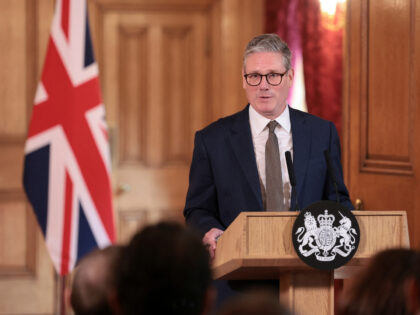
LABOUR SCRAPS Rwanda Plan, Sparks Outrage Over Immigration
— The Labour government has abandoned the plan to send illegal immigrants to Rwanda for asylum processing. This scheme, introduced by ex-PM Boris Johnson in 2022, aimed to address the migrant crisis in the English Channel. A party insider confirmed that the plan is "dead.
Critics argue that Prime Minister Rishi Sunak knew the Rwanda plan wouldn’t work and called an election to avoid embarrassment from potential European Court of Human Rights (ECHR) interventions. Nigel Farage had previously suggested this was Sunak’s strategy.
Unlike Farage, Labour leader Sir Keir Starmer opposes withdrawing from the ECHR and seeks closer ties with the EU on immigration matters. Starmer may even consider accepting a quota of EU migrants annually in exchange for a returns policy.
Scrapping the Rwanda policy means forfeiting £270 million already sent to Kigali but saves future payments of £50 million each in 2025 and 2026. The Conservatives had claimed this policy would deter future boat migrants, a stance now abandoned by Labour.

— UK Election: Polls Closing as Labour Seeks Return to Power After 14 Years Polls are scheduled to close in the UK election as the center-left Labour party aims to reclaim power after a 14-year absence
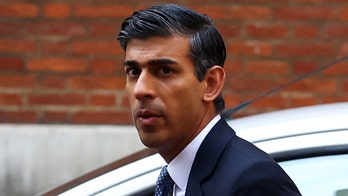
SUNAK’S D-DAY Exit Sparks Outrage: Apologizes for TV Appearance
— British Prime Minister Rishi Sunak apologized Friday for leaving D-Day commemorations in Normandy, France, early to appear on TV. His decision sparked backlash at home and added to the Conservative Party’s struggles against Keir Starmer’s Labour Party in opinion polls.
“On reflection, it was a mistake not to stay longer, and I’ve apologized for that,” Sunak told reporters. He emphasized that the focus should be on veterans rather than politics during such events.
Starmer remained in Normandy for the entire commemoration, engaging with world leaders like Ukrainian President Volodymyr Zelensky. Meanwhile, Sunak delegated other duties to ministers including Foreign Secretary David Cameron.
Sunak’s early departure was planned weeks before the general election call but failed to consider its negative optics. Critics argue this move undermined his leadership during a significant historical event.

SUNAK SHOCKS Nation: Calls Surprise Election for July 4
— British Prime Minister Rishi Sunak has shocked many by calling a general election for July 4. Known for being thorough and evidence-led, this move contrasts sharply with his usual cautious approach.
Opinion polls suggest that Sunak’s Conservative Party is trailing behind the opposition Labour Party, which could spell trouble for his leadership. Sunak took office in October 2022, replacing Liz Truss after her economic policies caused market turmoil.
Sunak had warned against Truss’s unfunded tax cuts, predicting economic havoc that indeed followed. His rise to power was rapid, becoming Britain’s first leader of color and youngest prime minister in over two centuries at age 42.
Sunak previously served as Treasury chief during the coronavirus pandemic, where he introduced an unprecedented economic support package. Now at age 44, he faces a critical test with this upcoming election amid challenging political landscapes.

SCOTTISH LEADER Faces Political Turmoil Amid Climate Dispute
— Scottish First Minister Humza Yousaf has firmly stated he will not step down, even though he faces a no-confidence vote. This situation arose after he terminated a three-year collaboration with the Greens, leaving his Scottish National Party in control of a minority government.
The conflict started when Yousaf and the Greens disagreed on how to handle climate change policies. As a result, the Scottish Conservatives have put forward a no-confidence motion against him. This critical vote is set for next week in the Scottish Parliament.
With the withdrawal of support from the Greens, Yousaf’s party now lacks two seats to hold a majority. If he loses this upcoming vote, it could lead to his resignation and potentially prompt an early election in Scotland, which isn’t scheduled until 2026.
This political instability highlights deep divisions within Scottish politics over environmental strategies and governance, posing significant challenges for Yousaf’s leadership as he navigates these turbulent waters without sufficient backing from former allies.

Theresa May’s SHOCKING Exit: Former British PM Bids Farewell to Parliament
— Former British Prime Minister Theresa May has announced her plans to resign as a Member of Parliament. This surprising revelation precedes an anticipated election later this year, signifying the conclusion of her 27-year long parliamentary journey.
May, who navigated Britain through the turbulent Brexit era, pointed out her escalating involvement in combating human trafficking and modern slavery as reasons for stepping down. She voiced apprehensions about not being able to cater to her Maidenhead constituents in the quality they deserve.
Her tenure was characterized by Brexit-induced hurdles and tense relations with then-U.S. President Donald Trump. Despite these obstacles, she continued serving as a backbench legislator after her premiership while three Conservative successors dealt with the repercussions of Brexit.
Renowned for sporadically critiquing her more populist successors like Boris Johnson, May’s exit will undeniably create a gap in both the Conservative party and British politics.

Theresa May’s SWAN SONG: Former British PM to Exit Politics After 27-Year Stint
— Former British Prime Minister Theresa May has shared her plans to retire from politics. This announcement comes after a distinguished 27-year career in Parliament, which included a challenging three-year term as the nation’s leader during the Brexit crisis. The retirement will take effect when an election is called later this year.
May has been representing Maidenhead since 1997 and was only the second female prime minister in Britain, following Margaret Thatcher. She cited her growing commitment to fighting human trafficking and modern slavery as reasons for stepping down. According to May, these new priorities would hinder her ability to serve as an MP according to her standards and those of her constituents.
Her prime ministership was fraught with Brexit-related obstacles, culminating in her resignation as party leader and prime minister in mid-2019 after failing to gain parliamentary approval for her EU divorce deal. Additionally, she had a strained relationship with then-US President Donald Trump due to divergent views on Brexit strategies.
Despite these challenges, May chose not to leave Parliament immediately after ending her term as many former prime ministers do. Instead, she continued serving as a backbench legislator while three subsequent Conservative leaders dealt with the political and economic repercussions of Brexit.

Sunak’s RWANDA Gamble: A Crucial Test Amid Conservative Uproar
— UK Prime Minister Rishi Sunak faces a rebellion within his own party. He’s pushing for approval of a controversial plan to deport certain asylum-seekers to Rwanda. The plan has already been blocked by the UK Supreme Court, and 60 members of his party have attempted to toughen the legislation. This led to the resignation of two deputy chairmen and a junior ministerial aide from his party.
The “Safety of Rwanda Bill” could face defeat if another rebellion occurs within Sunak’s party. This would pose a significant threat to Sunak’s government, which is just over a year old. The Prime Minister has placed this contentious immigration policy at the center of his election campaign strategy, even though he trails significantly behind Labour in opinion polls.
Sunak believes that deporting unauthorized asylum-seekers will discourage dangerous crossings over the English Channel and disrupt people-smuggling operations. However, he faces an uphill battle in convincing both fellow Conservatives and voters that this plan is effective.
Navigating tensions between liberal and law-and-order factions within his own party adds another layer of complexity for Sunak as he tries to push through this divisive policy.

FORMER UK Energy Minister RESIGNS: Climate Policy U-Turn Sparks Outrage
— Chris Skidmore, the former energy minister of Britain, has declared his resignation from the Conservative Party and his position as a lawmaker. He attributes this decision to the government’s sudden shift away from its environmental commitments.
Skidmore, known for his strong advocacy for reducing carbon emissions to net zero by 2050, voiced disappointment over an upcoming bill. This controversial legislation promotes new North Sea oil and gas drilling which Skidmore sees as a glaring departure from the UK’s climate objectives.
Prime Minister Rishi Sunak is reportedly watering down several green initiatives due to 'unacceptable costs’ for ordinary citizens. Actions include pushing back a ban on new gas and diesel vehicles, scrapping an energy-efficiency regulation, and green-lighting numerous North Sea oil and gas licenses.
Skidmore is set to officially step down when Parliament reconvenes after its Christmas break next week. His exit indicates a rising wave of dissatisfaction within conservative circles over the government’s shifting environmental policies.
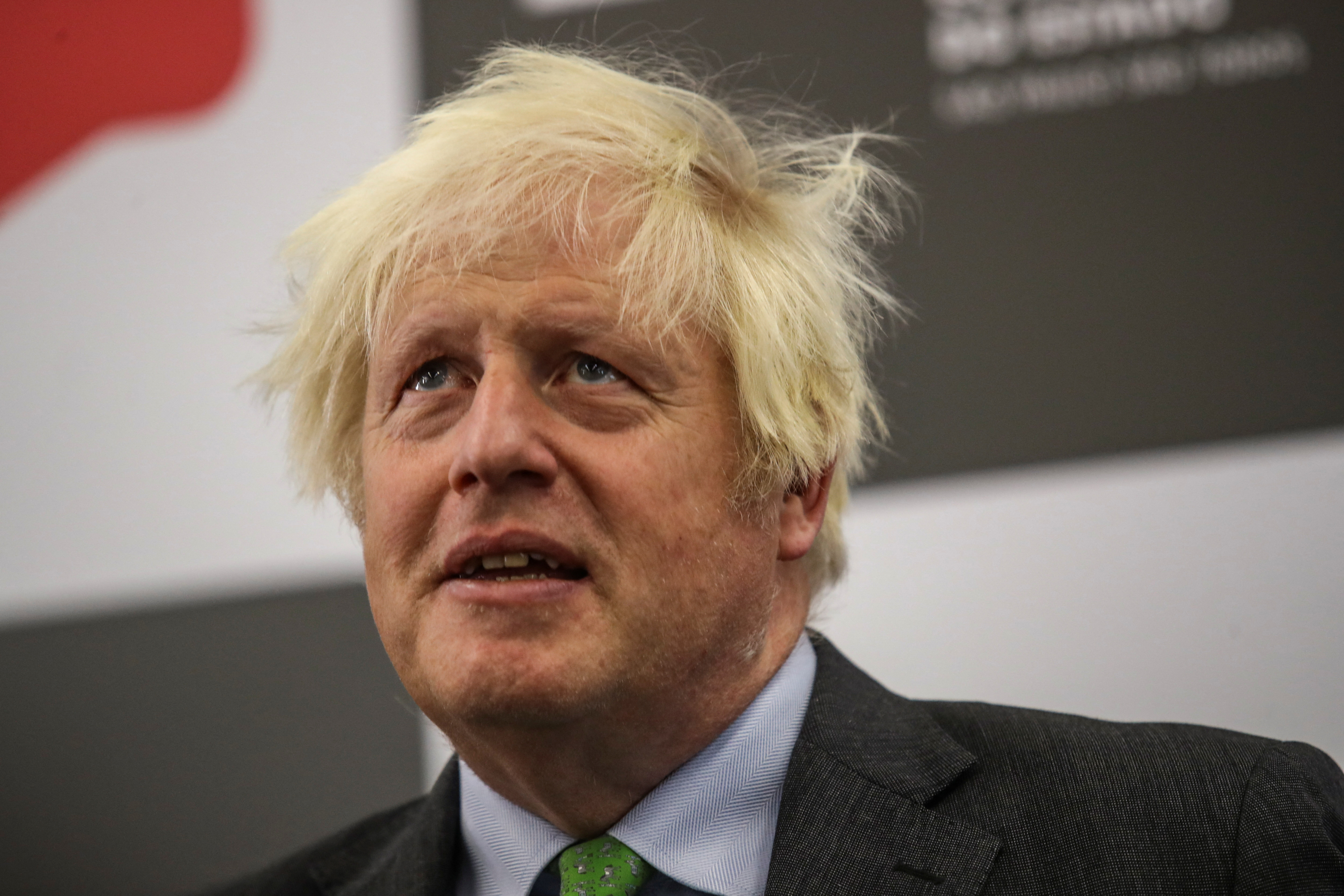
MASSIVE Stand Against ANTISEMITISM: Boris Johnson Joins Thousands in Historic London March
— On Sunday, an unprecedented number of people, including former U.K. Prime Minister Boris Johnson, took to the streets of London to protest against antisemitism. The march was strategically organized a day after a large pro-Palestinian rally and amidst rising tensions due to the Israel-Hamas conflict in Gaza. Organizers hailed it as the most significant demonstration against antisemitism in nearly a century.
The crowd was a sea of Israeli flags and Union Jacks, with participants bearing powerful placards like “Never Again Is Now” and “Zero Tolerance for Antisemites.” Alongside Johnson, U.K. Chief Rabbi Ephraim Mirvis and other high-ranking government officials marched in unity with the Jewish community.
Notably detained at the event was Stephen Yaxley-Lennon, better known as Tommy Robinson, former leader of the far-right English Defence League. Earlier this month, Robinson had an altercation with police during an Armistice Day march in London after refusing to leave despite warnings that his presence could distress others.
Among those marching was 75-year-old Malcolm Canning from London who voiced his concerns about current anti-Jewish sentiment. He expressed his alarm at how anything associated with Judaism feels under attack now and lamented reaching such a stage in this country.
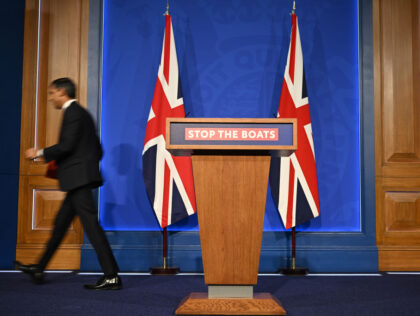
UK Government’s RWANDA Deportation Plan DERAILS: A Major U-Turn in Policy Revealed
— The UK government has confessed that it can’t assure any Rwanda deportation flights will depart before the forthcoming general election. This revelation from Chancellor Jeremy Hunt marks a significant shift from Prime Minister Rishi Sunak’s earlier statements. The Supreme Court recently deemed the Rwanda plan unlawful, prompting Sunak to hustle to regain control of the situation.
In an interview with Sky News, Hunt expressed optimism for flights next year but conceded, “We can’t guarantee that.” The United Kingdom is set for a general election next year at the latest by early January 2025. Current polling suggests that the ruling Conservatives are likely to be defeated.
An ex-government minister responsible for this policy cautioned that it won’t work as the government lacks boldness to implement necessary steps for deportations. Sunak had previously pledged in an emergency address to eliminate any further obstacles to enforce this policy and ensure planes depart as scheduled in Spring next year.
This reversal pushes back the revised date for deportation flights further into the future than initially expected. Despite this drawback, James Cleverly, new Home Secretary (interior minister), maintains they are “absolutely determined” to see them

BRAVERMAN SHOCKER: Home Secretary Booted Amid Fierce Police Bias Controversy
— In the early hours of Monday, Suella Braverman was abruptly dismissed from her position as Home Secretary. This marks the first significant shake-up in the much-anticipated cabinet reshuffle. The decision follows a rising tide of political opposition demanding her departure in light of her critique on police conduct during recent Israel-Palestine protests in London.
Braverman had pointed fingers at senior police officers for displaying left-wing bias. She referenced incidents where those opposing lockdown measures were dealt with severely, while Black Lives Matter protestors were allegedly permitted to flout rules. Moreover, she argued that right-wing and nationalist demonstrators faced harsh consequences, whereas pro-Palestinian groups exhibiting similar conduct were largely overlooked.
Her remarks ignited a firestorm of criticism, predominantly from left-leaning detractors and some centrists within the Conservative Party. Despite facing backlash, Braverman continued to express concerns over Palestine protests on Sunday. She hinted at inadequate policing by Metropolitan Police leadership that needed attention.
Whether these comments were strategic moves towards leadership or attempts at legacy building remains uncertain.

Rishi Sunak’s TURBULENT First Year: Is History About to REPEAT Itself for the Conservatives?
— Rishi Sunak, UK Prime Minister, has marked his first year in office amidst a storm of international conflicts and domestic challenges. His Conservative Party is haunted by the ghost of 1996, when they were dethroned by the Labour Party after ruling for more than a decade.
Recent opinion polls reveal that the Conservatives are lagging 15 to 20 points behind Labour. This gap has remained steady throughout Sunak’s term. An Ipsos poll showed that a whopping 65% of respondents felt the Conservatives did not deserve another term, while merely 19% believed they did.
The ongoing Israel-Hamas conflict and Russia’s war in Ukraine have added layers of complexity to Sunak’s situation. Despite acknowledging his challenging year and vowing to continue serving hardworking families nationwide, there are widespread fears these hurdles may trigger another Conservative downfall.

Video
STARKEIR STARMER’S £100K Freebies Spark Outrage
— Prime Minister Sir Keir Starmer has received more freebies than any other MP since becoming Labour leader. He declared gifts and hospitality worth over £100,000, surpassing all other MPs. These gifts include tickets to sporting events and lavish dinners from various organizations.
This trend of MPs receiving substantial benefits raises ethical questions about the influence of such gifts on political decisions. Public trust in politicians is already low, and further scrutiny is anticipated from both the public and political adversaries. Starmer’s office claims all gifts were declared according to parliamentary rules, ensuring transparency.
The disclosure has sparked debate on stricter regulations for MPs accepting gifts and benefits. Critics argue that lavish gifts can lead to conflicts of interest and compromise impartiality. Supporters say these experiences help politicians engage with different sectors, benefiting their understanding and policy-making.
As the story unfolds, calls for reform in regulations governing MPs may arise. Sky News’ investigation highlights the blurred lines between politics and external influences, prompting a re-evaluation of ethical standards for public servants.
More Videos
Invalid Query
The keyword entered was invalid, or we couldn't gather enough relevant information to construct a thread. Try checking the spelling or entering a broader search term. Often simple one-word terms are enough for our algorithms to build a detailed thread on the topic. Longer multi-word terms will refine the search but create a narrower information thread.


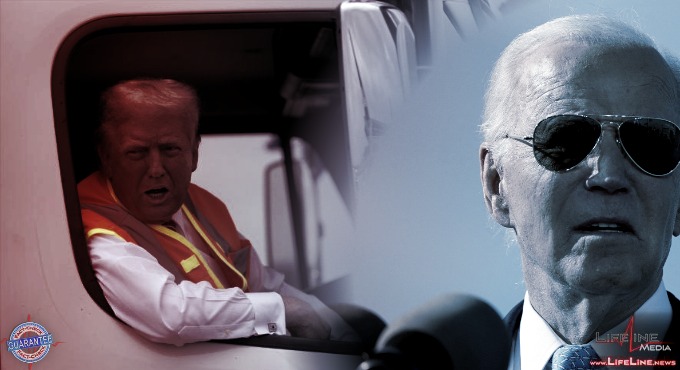




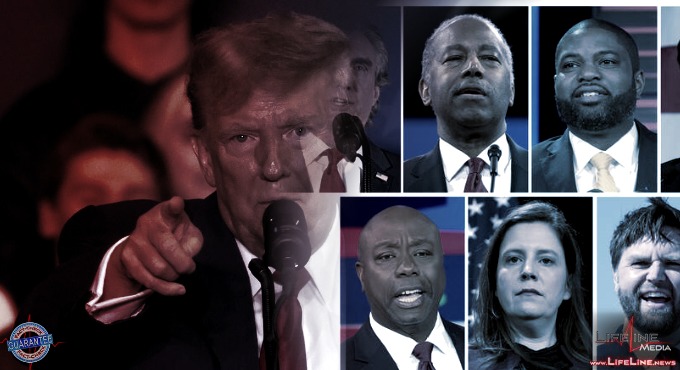
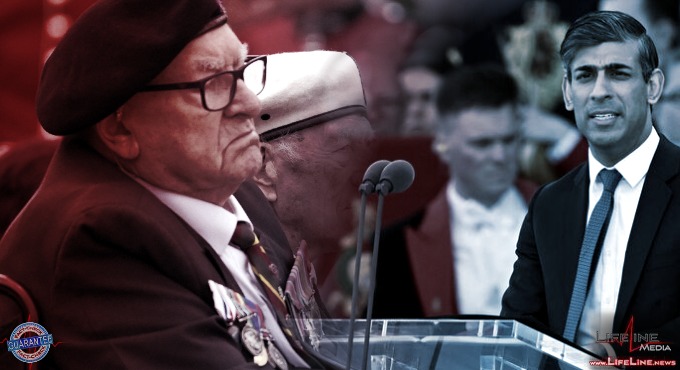
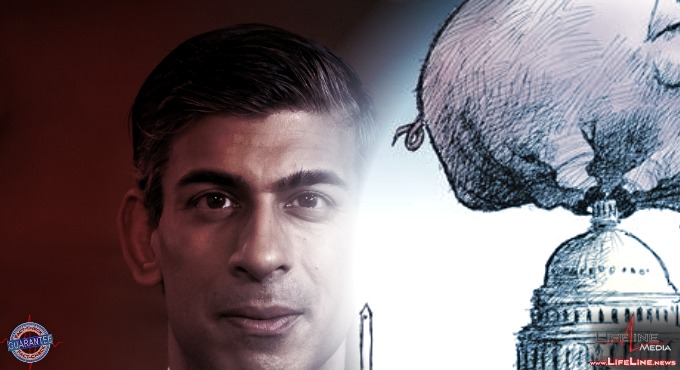


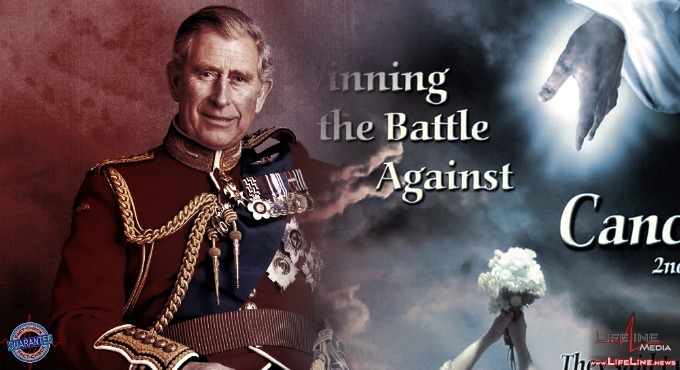



Social Chatter
What the World is SayingMP,s final sitting ahead of dissolution: Minority leader Ato forson delievers his fiinal speech. MP,s final sitting ahead of dissolution: Minority leader Ato forson delievers his fiinal speech. Mps hold final sitting ahead of dissolution of the 8th Parliament and Inauguration 2025 Don't forget to subscribe for more Updates: ...
. . .MP,s final sitting ahead of dissolution: Minority leader Ato forson delievers his fiinal speech. MP,s final sitting ahead of dissolution: Minority leader Ato forson delievers his fiinal speech. Mps hold final sitting ahead of dissolution of the 8th Parliament and Inauguration 2025 Don't forget to subscribe for more Updates: ...
. . .MP,s final sitting ahead of dissolution: Minority leader Ato forson delievers his fiinal speech. MP,s final sitting ahead of dissolution: Minority leader Ato forson delievers his fiinal speech. Mps hold final sitting ahead of dissolution of the 8th Parliament and Inauguration 2025 Don't forget to subscribe for more Updates: ...
. . .MP,s final sitting ahead of dissolution: Minority leader Ato forson delievers his fiinal speech. MP,s final sitting ahead of dissolution: Minority leader Ato forson delievers his fiinal speech. Mps hold final sitting ahead of dissolution of the 8th Parliament and Inauguration 2025 Don't forget to subscribe for more Updates: ...
. . .MP,s final sitting ahead of dissolution: Minority leader Ato forson delievers his fiinal speech. MP,s final sitting ahead of dissolution: Minority leader Ato forson delievers his fiinal speech. Mps hold final sitting ahead of dissolution of the 8th Parliament and Inauguration 2025 Don't forget to subscribe for more Updates: ...
. . .